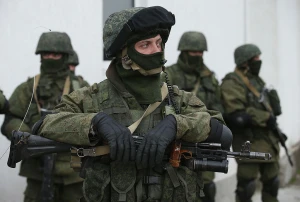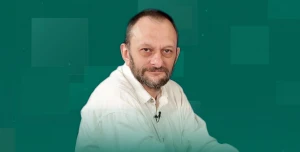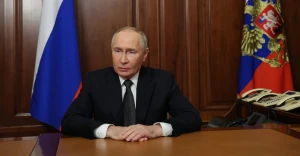
Moscow has missed renaissance of Islam in Caucasus
In Dagestan, it was clear that Russian special forces lost control of their own operation
Since the conflict escalated in the Middle East, Moscow has been spreading anti-Jewish, anti-American, and anti-Ukrainian sentiments in the North Caucasus. They intentionally created and fueled this hatred among the people there. Russian propagandists manipulatively used the religious beliefs of local Muslims. However, the Kremlin missed something important. They didn't anticipate that supporting the Palestinians and opposing Israel could easily turn into a form of protest against the government.
For many native peoples in Russia, Islam helps them hold onto their cultural identity and show how they are different from Russians. They've lost or are losing their language, their historical heritage is restricted, and they're punished for practicing their traditional customs.
Religion has been one of the few outlets for freedom, but it's gradually being restricted. This has given rise to radicalization. Moscow has missed renaissance of Islam in the troubled southern regions of Russia.
The Kremlin attempted to manipulate the religious sentiments of Muslims by exploiting the Middle East conflict. They thought they could connect with Russian Muslims and incite controlled unrest in the North Caucasus, spreading the effects outward. However, their plan backfired, and they had to backtrack in panic. Even the pro-Kremlin FSB Twitter channels, which initially shared numerous anti-Jewish posts, later acknowledged that “not all Jews are bad and guilty.”
The protests in Dagestan, and elsewhere, were ostensibly about supporting Palestine. However, this was just a pretext. In reality, it was a sanctioned opportunity to voice discontent against the government’s oppression. People's frustration found an outlet in these protests. Just ten days ago, Kadyrov, being more canny, prohibited any show of solidarity with Palestine within Chechnya's borders. Local police officers conducted awareness campaigns. Kadyrov could foresee the implications better than Putin.
About the author: Mykhailo Basarab, political scientist.
The editors do not always share the opinions expressed by the blog authors.
- News













































